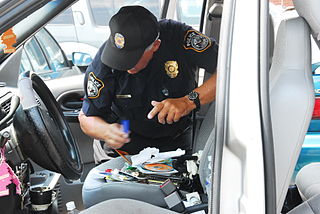Holder Limits Seized-Asset Sharing Process That Split Billions With Local, State PoliceBy Robert O'Harrow Jr., Sari Horwitz and Steven RichWashington Post Jan. 16, 2015 |
Popular 
Bari Weiss' Free Speech Martyr Uri Berliner Wants FBI and Police to Spy on Pro-Palestine Activists

Telegram Founder Changed Mind on Setting Up Shop in San Francisco After Being Robbed Leaving Twitter HQ

America Last: House Bill Provides $26B for Israel, $61B for Ukraine and Zero to Secure U.S. Border

MSNBC's Joy Reid Celebrates Prosecution of Trump as Racial Revenge Against Whitey

Ukraine Tells The U.S. It Wants to Be Treated Like Israel
  Radley Balko: Breaking down Holder’s move to limit civil asset forfeiture abuseAttorney General Eric H. Holder Jr. on Friday barred local and state police from using federal law to seize cash, cars and other property without proving that a crime occurred. Radley Balko: Breaking down Holder’s move to limit civil asset forfeiture abuseAttorney General Eric H. Holder Jr. on Friday barred local and state police from using federal law to seize cash, cars and other property without proving that a crime occurred.Holder’s action represents the most sweeping check on police power to confiscate personal property since the seizures began three decades ago as part of the war on drugs. Since 2008, thousands of local and state police agencies have made more than 55,000 seizures of cash and property worth $3 billion under a civil asset forfeiture program at the Justice Department called Equitable Sharing. The program has enabled local and state police to make seizures and then have them “adopted” by federal agencies, which share in the proceeds. The program allowed police departments and drug task forces to keep up to 80 percent of the proceeds of the adopted seizures, with the rest going to federal agencies. “With this new policy, effective immediately, the Justice Department is taking an important step to prohibit federal agency adoptions of state and local seizures, except for public safety reasons,” Holder said in a statement. Holder’s decision allows some limited exceptions, including illegal firearms, ammunition, explosives and property associated with child pornography, a small fraction of the total. This would eliminate virtually all cash and vehicle seizures made by local and state police from the program. While police can continue to make seizures under their own state laws, the federal program was easy to use and required most of the proceeds from the seizures to go to local and state police departments. Many states require seized proceeds to go into the general fund. A Justice official, who spoke on the condition of anonymity in order to discuss the attorney general’s motivation, said Holder “also believes that the new policy will eliminate any possibility that the adoption process might unintentionally incentivize unnecessary stops and seizures.” Holder’s decision follows a Washington Post investigation published in September that found that police have made cash seizures worth almost $2.5 billion from motorists and others without search warrants or indictments since the terrorist attacks of Sept. 11, 2001. The Post found that local and state police routinely pulled over drivers for minor traffic infractions, pressed them to agree to warrantless searches and seized large amounts of cash without evidence of wrongdoing. The law allows such seizures and forces the owners to prove their property was legally acquired in order to get it back. Police spent the seizure proceeds with little oversight, in some cases buying luxury cars, high-powered weapons and military-grade gear such as armored cars, according to an analysis of Justice Department data obtained through Freedom of Information Act requests. Read More |



